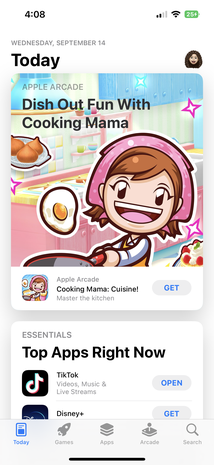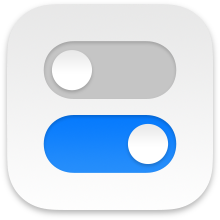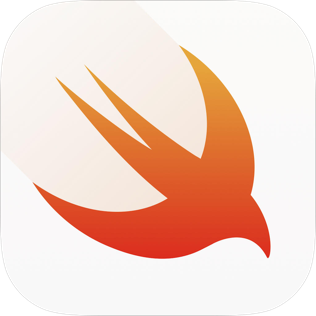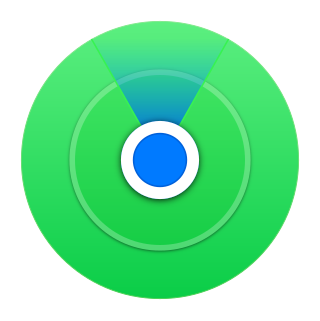
Keynote is a presentation software application developed as a part of the iWork productivity suite by Apple Inc. Version 10 of Keynote for Mac, the latest major update, was released in March 2020. On January 27, 2010, Apple announced a new version of Keynote for iPad with an all-new touch interface. It is now also available for the iPhone to download from the App Store.

iWork is an office suite of applications created by Apple for its macOS, iPadOS, and iOS operating systems, and also available cross-platform through the iCloud website.
The Apple community consists of the users, media, and third party companies interested in Apple Inc. and its products. They discuss rumors, future products, news stories, and support of Apple's products. Apple has a devoted following, especially for the Apple II, Mac, iPod, iPhone, and luminary staff members. The personal computer revolution, mixed with Apple's vertical integration of its products and services, has increased popularity. Apple's corporate policy of extreme secrecy about future products intensify interest in the company's activities.

Things is a task management app for macOS, iPadOS, iOS, watchOS, and visionOS made by Cultured Code, a software startup based in Stuttgart, Germany. It first released for Mac as an alpha that went out in late 2007 to 12,000 people and quickly gained popularity. The following July, when the App Store launched, it was among the first 552 apps available for iPhone. It was then released alongside the iPad in 2010, the Apple Watch in 2015, and the Apple Vision Pro in 2024.

iOS is a mobile operating system developed by Apple exclusively for its mobile devices. It was unveiled in January 2007 for the first-generation iPhone, which launched in June 2007. Major versions of iOS are released annually; the current stable version, iOS 18, was released to the public on September 16, 2024.

The iOS SDK, formerly the iPhone SDK, is a software development kit (SDK) developed by Apple Inc. The kit allows for the development of mobile apps on Apple's iOS and iPadOS operating systems.

The App Store is an app marketplace developed and maintained by Apple, for mobile apps on its iOS and iPadOS operating systems. The store allows users to browse and download approved apps developed within Apple's iOS SDK. Apps can be downloaded on the iPhone, iPod Touch, or iPad, and some can be transferred to the Apple Watch smartwatch or 4th-generation or newer Apple TVs as extensions of iPhone apps.
Submissions for mobile apps for iOS are subject to approval by Apple's App Review team, as outlined in the SDK agreement, for basic reliability testing and other analysis, before being published on the App Store. Applications may still be distributed ad hoc if they are rejected, by the author manually submitting a request to Apple to license the application to individual iPhones, although Apple may withdraw the ability for authors to do this at a later date.

Messages is a text messaging software application developed by Apple Inc. for its macOS, iOS, iPadOS, watchOS, and visionOS operating systems.
Tweetbot was a third-party Twitter client developed for iOS, iPadOS, and macOS created by Tapbots LLC. It was discontinued and removed from the App Store on January 19, 2023, following a decision made by Twitter to prohibit third-party apps from its API.

Control Center is a feature of Apple Inc.'s iOS, iPadOS, macOS, and visionOS operating systems. It was introduced as part of iOS 7, released on September 18, 2013. In iOS 7, it replaces the control pages found in previous versions. It gives iOS and iPadOS devices direct access to important settings for the device by swiping down from the top right corner on the iPhone X and newer, and on all iPad models starting with iOS 12 or iPadOS, with previous models using a swipe from the bottom of the screen. It is similar to the SBSettings tweak for iOS jailbreaking. Control Center was also added to Macs in macOS 11 Big Sur, released on November 12, 2020.

iOS 8 is the eighth major release of the iOS mobile operating system developed by Apple Inc., being the successor to iOS 7. It was announced at the company's Worldwide Developers Conference on June 2, 2014, and was released on September 17, 2014. It was succeeded by iOS 9 on September 16, 2015.

tvOS is an operating system developed by Apple for the Apple TV, a digital media player. In the first-generation Apple TV, Apple TV Software was based on Mac OS X. The software for the second-generation and later Apple TVs is based on the iOS operating system and has many similar frameworks, technologies, and concepts.

iOS 11 is the eleventh major release of the iOS mobile operating system developed by Apple, being the successor to iOS 10. It was announced at the company's Worldwide Developers Conference on June 5, 2017, and was released on September 19, 2017. It was succeeded by iOS 12 on September 17, 2018.
iOS 12 is the twelfth major release of the iOS mobile operating system developed by Apple. Aesthetically similar to its predecessor, iOS 11, it focuses more on performance than on new features, quality improvements and security updates. Announced at the company's Worldwide Developers Conference on June 4, 2018, iOS 12 was released to the public on September 17, 2018. It was succeeded for the iPhone and iPod Touch by iOS 13 on September 19, 2019, and for the iPad by iPadOS 13 on September 24, 2019. Security updates for iOS 12 continued for four years after the releases of iOS 13 and iPadOS 13 for devices unable to run the newer versions. The last update, 12.5.7, was released on January 23, 2023.

Swift Playgrounds is an educational tool and development environment for the Swift programming language developed by Apple Inc., initially announced at the WWDC 2016 conference. It was introduced as an iPad application alongside iOS 10, with a macOS version introduced in February 2020. It is available for free via Apple's App Store for iPadOS and Mac App Store for macOS.

iOS 13 is the thirteenth major release of the iOS mobile operating system developed by Apple for the iPhone, iPod Touch and HomePod. The successor to iOS 12, it was announced at the company's Worldwide Developers Conference (WWDC) on June 3, 2019, and released on September 19, 2019. It was succeeded by iOS 14, released on September 16, 2020.

Find My is an asset tracking service made by Apple Inc. that enables users to track the location of iOS, iPadOS, macOS, watchOS, visionOS, tvOS devices, AirPods, AirTags, and a number of supported third-party accessories through a connected iCloud account. Users can also show their primary device's geographic location to others, and can view the location of others who choose to share their location. Find My was released alongside iOS 13 on September 19, 2019, merging the functions of the former Find My iPhone and Find My Friends into a single app. On watchOS, Find My is separated into three different applications: Find Devices, Find People and Find Items.
The iOS mobile operating system developed by Apple has had a wide range of bugs and security issues discovered throughout its lifespan, including security exploits discovered in most versions of the operating system related to the practice of jailbreaking, bypassing the user's lock screen, issues relating to battery drain, crash bugs encountered when sending photos or certain Unicode characters via text messages sent through the Messages application, and general bugs and security issues later fixed in newer versions of the operating system.










